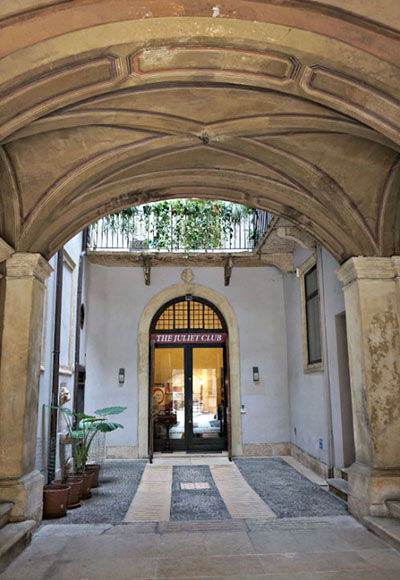Diane May lives in Verona and after plying her with all the charm I possess I convinced her to let me fly to Verona to sit down with her for an interview. (Some of this statement is a lie.)
Jeffrey Keeten: Excuse the pun, but where/when/how did this "germ" of an idea of a plot come together for you? What got you started writing?
Diane May: What got me started writing was Isaac Asimov’s The Naked Sun. I read it when I was 13 years old and loved it so much that I didn’t want it to end. So when it inevitably did, I decided to continue the story because I couldn’t bear the thought of having to leave the amazing world he had created. I soon discovered that my words didn’t seem to hold the same magical power though, as my characters seemed adamant on remaining lifeless stick figures and they didn’t jump off the page the way his did. But I kept at it, I read and wrote, I even won writing contests in school (because my literature teacher made me write stories when she discovered I was good at this), but I never actually considered writing for readers. I only wanted to write for myself, to create worlds and characters and, more often than not, I would do this in my mind without even putting it down on paper. Until one day when my husband found a novel I had written while I was at university and he loved it so much that I started writing for him. He’s always been an avid reader, just like me, and from that moment on he also became my critic, editor and motivator. And… the rest is history.
As for the idea for this story… well, I’ve always been fascinated by two things: genetics and the universe. I watch documentaries and Ted Talks about them, and one day, after watching an amazing BBC documentary about genetic engineering, I started picturing in my mind the scenario in Evo, more specifically the part at the end. And then I did some research and found out that we’re actually not that far from this scenario and that there are already scientists who are officially working on extending our current lifespan. And then I started thinking about illegal genetic experiments and what happens when we play with things that are beyond our understanding. Because no matter how much medicine has advanced, we still don’t understand how a tiny change in our DNA will affect human evolution in the long run. And so Evo was born.

Diane May (photo credit: www.ricwebdesign.com)
Jeffrey Keeten: I could tell you are a military brat because you are very comfortable with your descriptions of weapons and military/spy gadgets. I particularly liked the cell phone sized gadget that messed with cameras for 60 seconds. I could use one of those walking around in the States given all the camera lens trained on us wherever we go. Can you share a bit of your background while being a military family? Did the government move you around a bit?
Diane May: Yes, it did… a lot. The first time it happened I was eight years old and I cried and cried because I didn’t want to leave my friends. The second time it happened I was eleven and I promised myself I would never make friends again. And so I started reading more – I was already in love with reading – and never left the house, except when I had to go to school or my mum told me to take out the garbage. My parents got worried because I would read between one and three books a day, depending on the length of the book, and I completely refused to go out and make friends. But I was happy because books never left you and they were portals to magical, wonderful worlds. However, there’s much more to life as a military brat than just the pain of constantly making friends and then losing them. I lived on military bases at times, I became interested in guns and military technology, I even learnt the Morse Code when I was 15 and most of my friends were either like me or soldiers… And you know what’s interesting? That even now as an adult who hasn’t lived on a military base for over twenty years, I still see army as a home and men and women in uniform as completely trustworthy.
The gadget you mention is purely my invention, as is the black bag O’Neal uses to destroy evidence during his mission in Moscow. And by the way, if the army is interested in making them they can go right ahead and do it, I hereby give them permission. :))
Jeffrey Keeten: You take us to America and also give us a peek of Transylvania. Have you had a chance to visit the other places besides Verona that are featured in your novel?
Jeffrey Keeten: Actually, I was born in Transylvania and I still go back there every few years. I also visited Germany and other countries in Europe, but I’ve never been to Africa. Sibiu, the city I mention in Transylvania, is the city I was born in and it’s close to Dracula’s Castle, which I visit quite often as Dracula is my uncle and he can get really grumpy if I don’t go and see him. Kidding! But here’s an interesting fact about me: I was born at two am on a full moon night in a town shrouded in a fog so dense that it looked like an impenetrable gray wall, and wolves were howling in the dark forest at the edge of the town. There was a terrible wind that night and when I came into the world and cried, like all babies do, a gust of wind opened the window and swept through the room so violently that the small white blanket the nurse was about to cover me with flew out of her hands and into the darkness outside, never to be found again. My grandma crossed herself and told my mom to always keep a crucifix by my head in the cot so the strigoi (vampires) can’t take me.
Vampires apart, Transylvania is an amazing place with breathtaking scenery, superb cities (see Sibiu, Brasov, Sighisoara), delicious food and wonderful people.

The Juliet Club, Verona
Jeffrey Keeten: You mentioned to me when we were corresponding about your book that you worked as a Juliet secretary which I found fascinating. Could you explain to my friends and followers what that job is exactly?
Jeffrey Keeten: If you’ve seen the movie Letters to Juliet, you might remember this quote: “There is a place in Verona where people who suffer can leave a message to ask Juliet for help.” That place is called Juliet Club, it’s real and it receives tens of thousands of letters and emails every year from people from all over the world. The story of the Dear Juliet letters started in the 1930s when Ettore Solimani, Juliet’s Tomb keeper, began gathering the letters people left at her grave. Moved by their stories and wanting to help them, he started replying and signed as Juliet’s Secretary and, in doing so, created this decades-old tradition. Now there’s an army of volunteers who do this, and although you’d be tempted to think that since we’re living in a highly technological era the number of emails the Club receives far exceeds that of the letters written by hand, the truth is that when writing about the matters of the heart people still prefer to use good old-fashioned pen and paper. When you’re there and you see all those letters written in so many different languages and coming from the four corners of the Earth, as Shakespeare would say, you understand that the one thing all human beings have in common, no matter their age, nationality and social status, is the need to love and be loved. Some write because they seek advice, others need hope and reassurance that they will sooner or later find their soulmate, and a few just want to say thank you for having met the one they want to spend the rest of their lives with. When you sit down at that table, open a letter and start reading it you fully understand why Ettore Solimani couldn’t throw them away and felt compelled to write back. Reading something which comes straight from the heart and soul of another human being is so powerful and so moving that it tears down all your walls and defenses and settles in your heart, and you find yourself unable to ignore it; it becomes your problem, your priority. And the answer you send back has a piece of your heart in it. What Juliet’s Secretaries do is not just simply answer letters, but send out hope; hope that time and obstacles don’t matter, that one day we will meet the one we’re destined to be with for the rest of our lives.
Jeffrey Keeten: One of your villains, the enhanced ability Hypnotist, was a guy that the X-Men might find themselves fighting, yet the way you presented his abilities it seemed so plausible. I can't think of anything more frightening than having someone who can control our actions and be able to take over our minds. Did/do you have nightmares about this guy?
Jeffrey Keeten: Ah, this is a tough question. When I first started thinking about him, picturing what he does and how he does it I tried to look at it clinically, like a scientist merely observing what happens in an experiment. This helped me to become somewhat immune to him, but writing those scenes still sent shivers down my spine and made my heart beat faster. The very idea of hypnosis scares me because we don’t fully understand how the mind works, yet we are arrogant enough to claim we can control it. Believe it or not, what gave me nightmares while writing the book was not his ability to take over our minds, but the reasons behind it, the thirst to kill and the fact that he’s completely devoid of any positive human emotions. And when I wrote the scene where you find out why he is the way he is, you know what kept me up at night? The fact that I could understand him, I could actually see that tortured little boy shedding his humanity and crossing over to the dark side. And I felt sorry for him.

Diane May (photo credit: www.ricwebdesign.com)
Jeffrey Keeten: So what are you working on next? Is this a first of a series or do you intend to write stand alone novels?
Jeffrey Keeten: When I wrote Evo I intended it to be a stand alone novel but after receiving reviews and messages where people told me how they loved Livio Marchiori, the homicide detective in the book, and how they would like to meet him again, I’m now thinking about writing a series with him as the main character. I already have some ideas in mind so that’s definitely a possibility, but the book I am currently working on is another crime thriller, called Till Death Do Us Part, and it is the first book in a series featuring Verona Police Detective Kate Martini. And trust me when I say it, there’s a new serial killer in town and he's looking forward to meeting you. ;)
Jeffrey Keeten: Yes! I’m so glad to hear that!
http://www.jeffreykeeten.com
https://www.facebook.com/JeffreyKeeten
